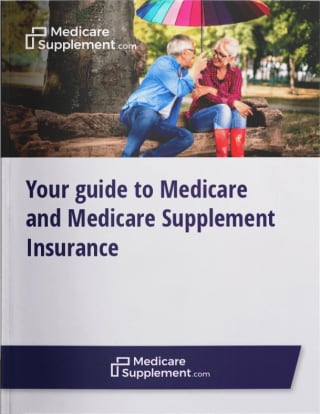Follow our Medicare Coronavirus News page for related information on coronavirus (COVID-19) and its impact on Medicare beneficiaries.
The Centers for Medicare & Medicaid Services (CMS) has approved the Medicaid waiver requests of 29 states under section 1135 of the Social Security Act in response to the novel coronavirus (COVID-19) outbreak.
How do Medicaid waivers help states fight the spread of COVID-19?
The waivers grant states some needed flexibility to focus resources on helping Medicaid recipients get the treatment they need during the pandemic.
The states with approved waivers include:
Alabama
Arizona
California
Colorado
Florida
Hawaii
Idaho
Illinois
Indiana
Iowa
Kansas
Kentucky
Louisiana
Maryland
Massachusetts
Mississippi
Missouri
New Hampshire
New Jersey
New Mexico
New York
North Carolina
North Dakota
Oklahoma
Oregon
Rhode Island
South Dakota
Virginia
Washington
Some of the deregulation afforded by the waivers eases prior authorizations and provider enrollment requirements, suspends certain pre-admission reviews for nursing homes and facilitates reimbursement to providers for care delivered in alternative settings because of evacuations.
“These waivers give a broad range of states the regulatory relief and support they need to more quickly and effectively care for their most vulnerable citizens,” CMS Administrator Seema Verma.1
The waivers are effective from March 1, 2020, until termination of the public health emergency.
Around 20 percent of all Medicare beneficiaries are dual eligible, meaning they are enrolled in both Medicare and Medicaid.
What can states now do to help care for Medicaid recipients?
Some of the actions that state Medicaid programs may now take as a result of the waivers include:
States can temporarily suspend prior authorization requirements. Prior authorization requires a doctor to first receive approval from a patient’s health insurance provider before prescribing certain medication.
States can extend current authorizations for services until the end of the public health emergency.
State Medicaid programs can extend minimum data set authorizations for nursing facility and skilled nursing facility residents. This gives providers in these settings more freedom from time-intensive data gathering.
Medicaid programs can modify certain timeline requirements for state hearings and appeals.
States can loosen provider enrollment requirements to expand access to care by more quickly enrolling out-of-state or other new providers.
This includes waiving application fees, criminal background checks and site visits for new providers and allowing an out-of-state provider to provide care for a Medicaid beneficiary from an emergency state and collect reimbursement for that care.
States can suspend the mandated two-week aide supervision requirement by a registered nurse for home health agencies and the supervision of hospice aides by a registered nurse every 14 days for hospice agencies.
The relaxing of public notice and submission guidelines for certain Medicaid state plan amendments focused on COVID-19 allows states to make faster changes and be retroactive to the start of the emergency declaration.
The COVID-19 outbreak is rapidly evolving, and more state updates may be issued in coming days.
1 CMS. (March 23, 2020). CMS Approves Medicaid Section 1135 Waivers for 11 Additional States in Response to COVID-19. Retrieved from https://www.cms.gov/newsroom/press-releases/cms-approves-medicaid-section-1135-waivers-11-additional-states-response-covid-19.
Christian Worstell is a health care and policy writer for MedicareSupplement.com. He has written hundreds of articles helping people better understand their Medicare coverage options.



